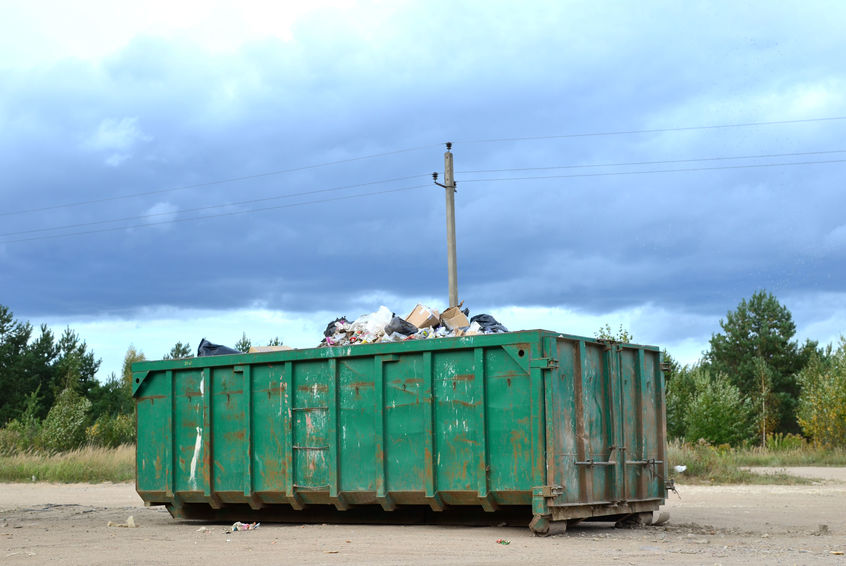Landfills were the main choice for eliminating construction waste but this is becoming less of an option. Landfills pose a health risk to individuals living around the area and lead to a reduction in property prices.
So, how can you deal with construction waste in the right way? This article looks at exactly that.
What Does Construction Waste Consist Of?

Construction waste mainly comprises debris generated during construction, demolition, or renovation of a building, bridge, road, or any other construction project. Materials like concrete, wood, rocks, glass, bricks, asphalt, and metals coming out of a construction project can be referred to as construction waste.
Ways to Deal With Construction Waste
- Reduce
A great way to prevent having too much construction waste to deal with is to reduce the supply of materials. This way prevents construction waste from being generated in the first place. Some ways to go about this include designing new buildings in a way that prolongs their life, preserving existing buildings instead of constructing new ones, encouraging the reuse of construction materials, using construction methods where disassembly can be done and using framing methods. Doing these things means that construction is reduced, which goes a long way in reducing the construction waste produced.
- Reuse
Some construction waste and debris can be reused as a resource. Examples of materials that can be diverted include plastics, clean wood, landscape clearing debris, insulation materials, masonry scrap, asphalt pavements, and concrete. Reusing used but still valuable materials is a great way to conserve natural resources and still save money. It also enables individuals to create local economic activities entailing reprocessing and manufacturing of salvaged materials.
- Get a Roll Off Dumpster
Another thing you can do to deal with construction waste is getting a roll-off dumpster. As the project continues, you can get a dumpster and have all the waste placed there. The dumpster can remain in that location until it is full. When this happens, the waste removal company will come and haul it away. They can take the waste to either a landfill or recycling plant where the waste is reused.
- Recycle
A lot of construction waste can be recycled and put to better use instead of being disposed of. For instance, rubble and concrete can be recycled into concrete and aggregate products. Metals like copper, brass, and steel can also be recycled or reused. Other materials like wood can make engineered wood products like furniture.
Different Ways to Recycle Construction Waste
There are different methods that can be used to recycled construction waste and they include:
- Site-Separated
This method makes use of multiple boxes for every type of waste. Waste is separated and placed in different boxes. The process gives immediate feedback on the site and can help ensure that materials to be recycled are actually recycled. This separation technique also builds a sense of responsibility in the work area. The only issue with site separation is that it requires a lot of space and a high level of supervision.
- Commingled Recycling
Commingled recycling entails the use of only one container. Here, the hauler sorts all the construction waste off-site. This makes it easier for everyone on-site, as they only need to load the waste for the hauler to go and sort later on. Since this method requires little storage, it is ideal for sites tight on space.
- Hybrid Recycling
This recycling method combines both site-separation and commingled recycling. Due to this reason, it presents a taste of both worlds. For instance, you can have one box for metal, one box for wood, and one box for other materials.
Research shows that construction waste accounts for one-third of the total refuse in the United States. This number means that it is important to make better use of waste that comes from construction or dispose of it better. This is because this waste can be a great danger to the environment. As a contractor or owner of the building being constructed, you need to ensure that waste is properly disposed of. Paying attention to the mentioned ways to deal with construction waste is one great place to start. However, you might also want to reach out to experts for the best advice on how to go about construction waste.

